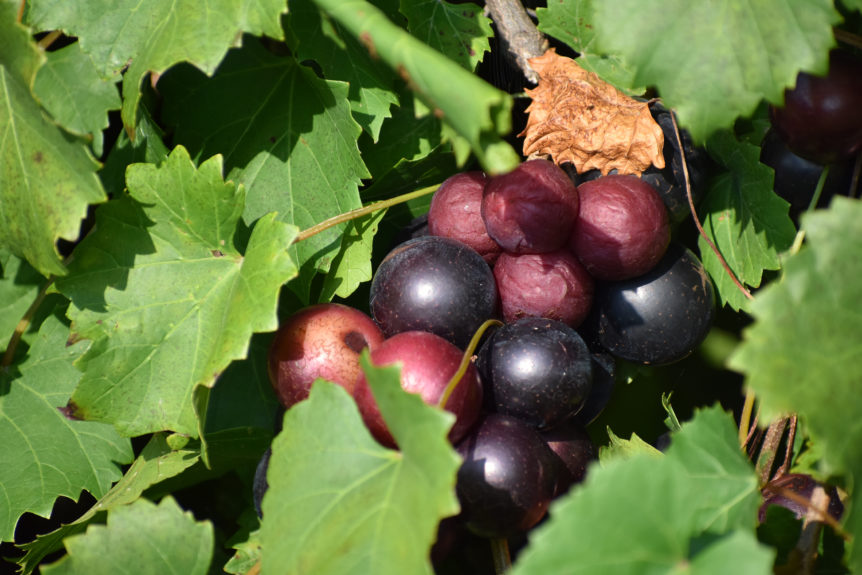
A University of Florida Institute of Food and Agricultural Sciences (UF/IFAS) study discovered new insights into how fruit detachment happens in muscadine grapes, paving the way for the possibility of mechanical harvesting.
The research, aimed at reducing the high costs of manual labor associated with muscadine production, identified critical characteristics of the fruit’s genetics that make them easier to pluck from the stem. The collaborative research between UF/IFAS horticultural sciences assistant professor Tie Liu and UF/IFAS horticultural sciences associate professor Ali Sarkhosh was published in Horticulture Research.
Muscadines, a type of grape native to Florida, cost more to harvest than other grapes and other fresh fruit because of the high cost of manual labor. Mechanical harvesting could reduce that cost, but cultivars need to be developed that have easily detachable fruit.
By identifying the genes that make grapes easier to pick, researchers are hoping to reduce labor costs, improve efficiency and increase postharvest quality in muscadine production long-term, said Liu.
“If it is difficult to detach from the plant, then you have to manually pull it off. That increases the manual labor needed during the harvesting season,” he said. “It costs a lot of money for farmers.
“It may have a broader impact on vegetables and fruits, and machine harvesting is really the goal to reduce the labor costs.”
Fruit Detachment
Fruit detaches at the pedicel, a small stalk that connects the fruit to the stem. The study looked at the characteristics of the muscadine and which factors make it easier to pull the fruit from the pedicel.
Researchers looked at the fruit detachment force across 18 muscadine genotypes at four stages of development. An analysis of the genetics – specifically the transcriptome, which is the full roster of mRNA that contain instructions for a plant to make proteins – of two types of muscadines’ pedicels (one where it was easy to remove fruit and one where it was difficult) helped identify which genes are involved with fruit detachment force.
The study found that fruit detachment force is connected to how long the pedicel is and the diameter of the grapes, among other factors. The transcriptome analysis found potential genes to test to see if they can help make new varieties of muscadines that can be harvested by machine. The work could potentially be helpful for other crops like tomatoes and wine grapes.
More research will be needed to verify that the genes found can be used to create cultivars that are easier to pull from the stem, especially since real-life applications have to deal with multiple challenges like environmental conditions.
Liu said his hope with this study is to “open the window to the future of technology-driven farming.”










